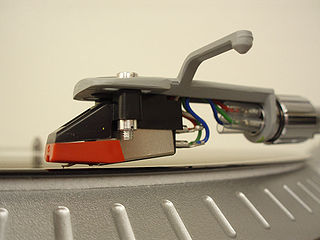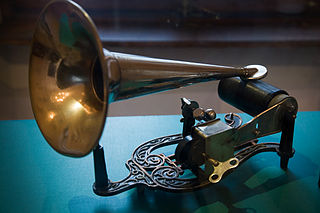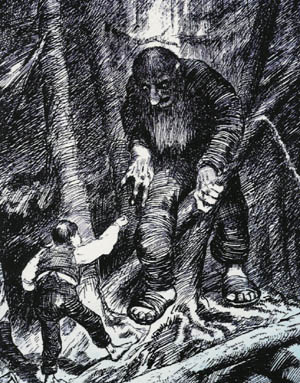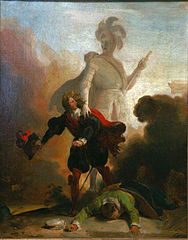“The present assault upon capital is but the beginning. It will be but a stepping-stone to others, larger and more sweeping, till our political contests will become a war of the poor against the rich.”
—Stephen J. Field, American judge, born November 4, 1816
Reuben, Reuben, I’ve Been Thinkin’
 Ha. That’ll be the day. Stephen J. Field, appointed by Abraham Lincoln in 1863, was one of the late nineteenth-early twentieth century US Supreme Court justices who were endlessly helpful to the Robber Baron capitalists during the first Gilded Age (the one before the one we’re enjoying so much now). Income Tax? We don’t need no stinkin’ Income Tax? Unions? See the quote. He also assented to Plessy vs Ferguson, the infamous 1896 case that upheld (legal) racial segregation. Field was the second-longest serving Supreme Court justice, only surpassed by William O. Douglas. He was repeatedly asked to resign by his colleagues, as he was intermittently senile in his later years, but he refused, insisting on breaking John Marshall’s record of thirty-three years on the court.
Ha. That’ll be the day. Stephen J. Field, appointed by Abraham Lincoln in 1863, was one of the late nineteenth-early twentieth century US Supreme Court justices who were endlessly helpful to the Robber Baron capitalists during the first Gilded Age (the one before the one we’re enjoying so much now). Income Tax? We don’t need no stinkin’ Income Tax? Unions? See the quote. He also assented to Plessy vs Ferguson, the infamous 1896 case that upheld (legal) racial segregation. Field was the second-longest serving Supreme Court justice, only surpassed by William O. Douglas. He was repeatedly asked to resign by his colleagues, as he was intermittently senile in his later years, but he refused, insisting on breaking John Marshall’s record of thirty-three years on the court.
President James K. Polk annexed Texas and led the US to victory in the iniquitous Mexican War. He gets the Last Word today. Polk was the “54–40 or fight” guy, too, dear to generations of American schoolchildren. He has been called the “least known consequential president” of the United States. Tremble indeed.

 I grew up in the LP era. On the good side, the experience included wonderful sound (some people think analog LPs sound better than digital recordings). The record companies churned out reissues of historical recordings, folk music (real folk music recorded in the field and performed by real folk as well as the works of Bob Dylan and his myriad imitators), classical Indian and Japanese music, Pardon My Blooper Records, comedy, recorded theater (I’m still looking for the recording of “Waiting For Godot” with Bert Lahr)…A 12 x 12 inch cardboad album cover provided plenty of room for visual pizazz on the front and for informative, interesting, or frankly bizarre written and visual content on the back.
I grew up in the LP era. On the good side, the experience included wonderful sound (some people think analog LPs sound better than digital recordings). The record companies churned out reissues of historical recordings, folk music (real folk music recorded in the field and performed by real folk as well as the works of Bob Dylan and his myriad imitators), classical Indian and Japanese music, Pardon My Blooper Records, comedy, recorded theater (I’m still looking for the recording of “Waiting For Godot” with Bert Lahr)…A 12 x 12 inch cardboad album cover provided plenty of room for visual pizazz on the front and for informative, interesting, or frankly bizarre written and visual content on the back.
 My goodness, the US House of Representatives is actually
My goodness, the US House of Representatives is actually  Boy and man, I have always loved systems. I was a software developer for most of my career. I devised, built, and ran lots of them. (Made a lot of money as a direct result of systems I built, too; but that’s a story for another day.) I think my very favorite kind of history is the history of systems, what
Boy and man, I have always loved systems. I was a software developer for most of my career. I devised, built, and ran lots of them. (Made a lot of money as a direct result of systems I built, too; but that’s a story for another day.) I think my very favorite kind of history is the history of systems, what  Linked to an article yesterday
Linked to an article yesterday  Spent all day on Friday and the morning on Saturday at Baystate Medical Center (not as a patient). They’re building a lot, there’s obviously lots of dough sloshing around, and they’re one of the largest employers in Western Massachusetts. In our rather quiet—somnolent?—local economy, this is going to need some attention from InCommN. More to come.
Spent all day on Friday and the morning on Saturday at Baystate Medical Center (not as a patient). They’re building a lot, there’s obviously lots of dough sloshing around, and they’re one of the largest employers in Western Massachusetts. In our rather quiet—somnolent?—local economy, this is going to need some attention from InCommN. More to come. Decided yesterday that Jeeves prefigures the Artisanal Servant of the future. He is in fact an Artist. His medium is Bertie Wooster and his social network. (Can’t resist: Aunts Dahlia and Agatha; pals Augustus “Gussie” Fink-Nottle, Harold “Stinker” Pinker, and Hildebrand “Tuppy” Glossop.) The entire edifice of upper class life in Wodehouse’s stories comes to depend on Jeeves.
Decided yesterday that Jeeves prefigures the Artisanal Servant of the future. He is in fact an Artist. His medium is Bertie Wooster and his social network. (Can’t resist: Aunts Dahlia and Agatha; pals Augustus “Gussie” Fink-Nottle, Harold “Stinker” Pinker, and Hildebrand “Tuppy” Glossop.) The entire edifice of upper class life in Wodehouse’s stories comes to depend on Jeeves. I posited
I posited